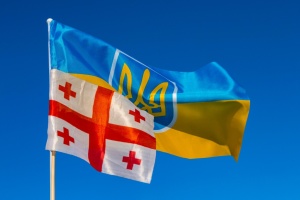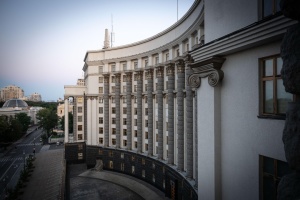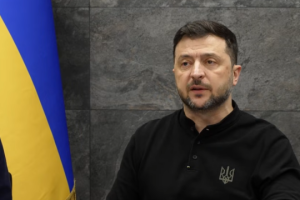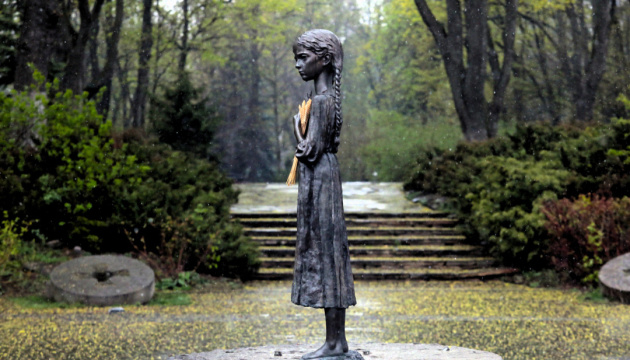
What Holodomor teaches us
The Holodomor is a fake created with the money of Nazi Germany ... It sounds like a line straight from a Russian talk show. In fact, this lie was spread to Western audiences in the 1930s by a reputable American journalist who for many years cast a shadow of doubt on one of the most terrible tragedies of the 20th century.
“That year, Ukraine was a complete hell” wrote Marko Tsarynnyk in 1933 — a researcher of the Great Famine in Ukraine, or Holodomor. Based on the calculations of demographers, he cited the following terrible figures: Ukrainian peasants were dying at a rate of 25,000 people per day, or 1,000 per hour, or 17 per minute. For reference, during the First World War, about 6,000 people died every day. Special brigades hastily dug mass graves in remote areas, where bodies were doused with petrol and set on fire.
Ukrainian demographers estimate that the losses accounted for by excessive deaths over 1932–1934 amounted to 3.9 million people. Due to the drop of the birth rate during the Famine, Ukraine missed out on about 600,000 babies.
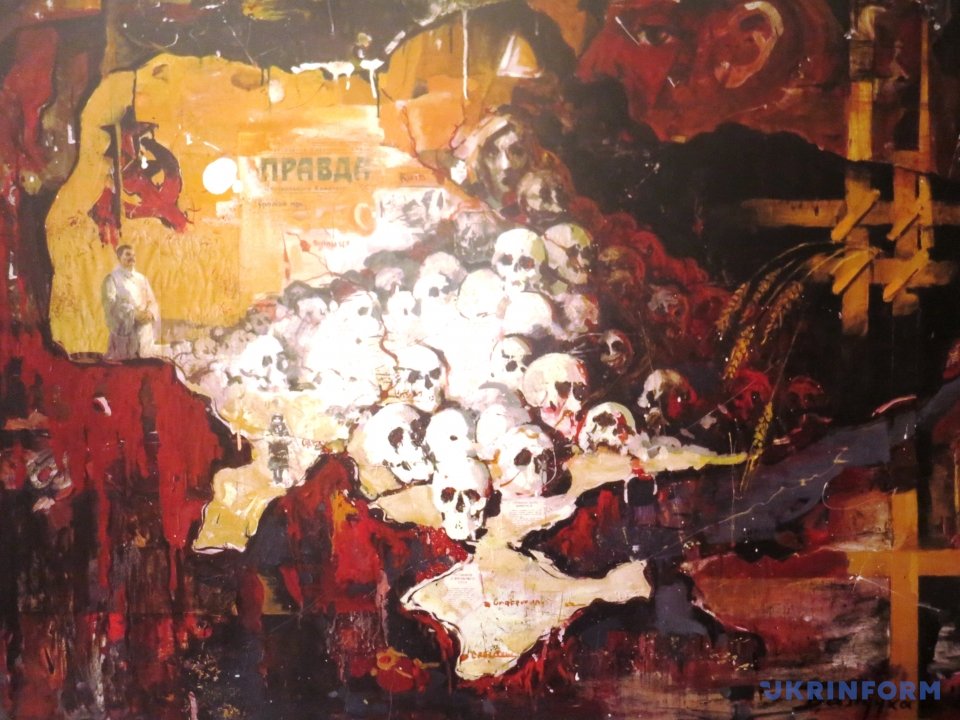
At the same time, Stalin made a major attack on the Ukrainian language and culture. In Ukrainian-populated areas of Kuban, these measures led to the closure of all Ukrainian schools, cultural institutions and newspapers.
“Stalin was not only going after Ukrainian grain; he was also targeting Ukrainian culture and, ultimately, Ukrainian identity itself,” writes Atlantic Council.
Raphael Lemkin, a Polish lawyer of Jewish descent who coined the term "genocide," considered the Holodomor a classic example of genocide. In 1953, Lemkin delivered a report entitled "Soviet Genocide in Ukraine" to an audience of 3,000 gathered at the Manhattan Center in New York to commemorate the 20th anniversary of the Great Famine of 1932-1933.
However, for decades this remained a "subject of debate" in the West—whether the famine was man-made or natural, intentional or unintentional, and what the scale was. To a large extent, the foundation for these doubts was laid by one man—American journalist Walter Duranty, who served as head of the Moscow bureau of The New York Times for fourteen years (1922-1936). And in this capacity, Duranty whitewashed the policies of the Stalinist regime.
“He had two faces, one leg, and no principles. He was a sycophant, a dabbler in the occult, in drugs, in sexual orgies. He was a habitual liar, a serial adulterer, a lout. Of all Generalissimo Joseph Stalin’s useful idiots, he was the most useful, and the most idiotic. And he was one of the most prominent journalists of his time” wrote American journalist Stefan Kanfer about Duranty.
In 1932, Walter Duranty was awarded one of the most prestigious professional awards for his work — the Pulitzer Prize.
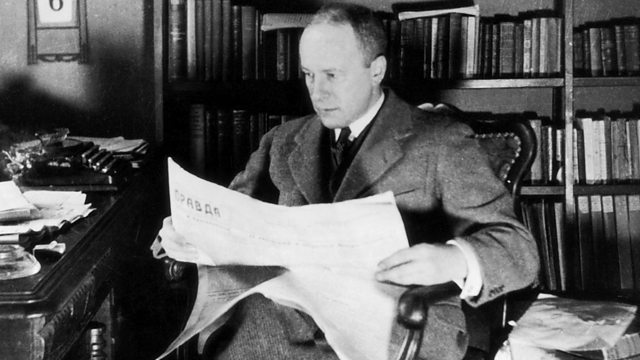
He was one of the world's most famous correspondents for one of the world's most famous newspapers. Robert Conquest, author of Harvest of Sorrow, wrote that, “As one of the best known correspondents in the world, writing for one of the best known newspapers, Mr. Duranty’s denial that there was a famine was accepted as gospel.” Duranty's influence on the perception of Stalin and the Soviet regime in the West was enormous. He actually pushed President Roosevelt to recognize the Soviet Union.
“Eastern Europe would pay the price,” wrote Michael Rubin, a former Pentagon official.
As head of The New York Times' Moscow bureau, Duranty initially dismissed rumours of a famine in Ukraine. Then he downplayed their significance. Later, he claimed that the "food shortage" in Ukraine was the result of local mismanagement and the activities of "pests" trying to undermine Soviet progress. In general, all talk of famine, he said, was a fake for Hitler’s money.
“There is no famine or actual starvation, nor is there likely to be.”
(The New York Times, November 15, 1931)
“What are a few million dead Russians in a situation like this? Quite unimportant. This is just an incident in the sweeping historical changes here. I think the entire matter is exaggerated. I'm not going to write anything about it.” (It was said in a private conversation during which foreign correspondents in Moscow discussed how to write about the famine in the USSR to circumvent censorship. Cited based on the memoirs of the American engineer Zara Vitkin, who worked in the USSR in the 1930s.)
“Enemies and foreign critics can say what they please. Weaklings and despondents at home may groan under the burden, but the youth and strength of the Russian people is essentially at one with the Kremlin's program, believes it worthwhile and supports it, however hard be the sledding.” (New York Times, December 9, 1932)
“There is no actual starvation or deaths from starvation, but there is widespread mortality from diseases due to malnutrition.” (The New York Times, March 31, 1933)
“You can't make an omelet without breaking eggs.”
(The New York Times, May 14, 1933)
“The accession of Adolf Hitler to power brought new hope—and in some cases new money—to Russian émigré circles in Germany, the Baltic States and elsewhere. These émigrés—like some other more disinterested observers of Soviet affairs—cannot see the woods for the trees and are only too ready to confuse causes and effects.” (The New York Times, August 12, 1933)
“Any report of a famine in Russia is today an exaggeration or malignant propaganda.”
(The New York Times, August 23, 1933)
The proverb about "omelet" and "eggs" became his trademark. Isabella Tabarovska wrote for Tablet Magazine that he probably used it instead of the Russian equivalent “forest cut down, chips are flying.” It is believed that Stalin loved to use it, explaining the disruptions and excesses of the revolution. This statement took on a sinister connotation, forever associated with the millions of lives sacrificed on the altar of the Bolshevik experiment. But to Duranty's audience, this phrase seemed proof of his genius, and it gave him numerous points among fans of the Soviet project.
In Duranty’s case, the “eggs” in question were the lives of men, women, and children, millions of them. But they were not supposed to be mourned, since they embodied the “Asian backwardness” against which Stalin allegedly fought. During 1931, Duranty proclaimed that Stalin was a progressive historical figure, comparing him to Oliver Cromwell, Napoleon, Chinese emperors, and even Prophet Muhammad. He characterized this “Asian backwardness” as passivity, fatalism, collectivism, propensity for mass behaviour, “ant morality,” fanatical religiousness and superstitions. Duranty attributed all these "Asian" qualities to the Slavs. Stalin, in his worldview, was somehow able to escape this “Slavic fatalism,” because he was from the Caucasus and “can hold fast to the thread of his own free will in the labyrinth where Slavs are lost.”

It is not clear why Duranty considered Caucasians to be “less Asian” than Slavic people. Nor did he explain why the biggest resistance to “progressive” collectivization took place in the very regions where peasants had the most contemporary skills, the longest history of voluntary cooperation and were the most productive, namely in Ukraine, in the Kuban and in the areas cultivated by the Germans of the Volga region. Or, what was “progressive” about destroying that independent peasantry. Or, how its replacement with “new serfdom” became a triumph over “Slavic fatalism” and “Asian backwardness.”
But all this served well to justify a violent and murderous attack on the Ukrainian peasantry, which allegedly became an obstacle on the way to progress and the highest good.
Describing the communist plan to eliminate the kulaks who opposed the Soviet collectivization of agriculture, Duranty wrote, for example, in 1931: “Must all of them and their families be physically abolished? Of course not – they must be ‘liquidated’ or melted in the hot fire of exile and labour into the proletarian mass.”
Communism has long gone into oblivion, but Russian propaganda has remained virtually the same: only peasantry has now been replaced with independent Ukrainians, who are an obstacle towards a higher good, merging in the “Russian world,” which means it must be eliminated.
It may seem that Duranty himself sincerely shared Bolshevik ideas and would agree to being “melted in the hot fire.” Not at all—in fact, Duranty rejected communism as a system suitable only for the East, for “primitive” Russians, meaning all USSR residents, who wanted and needed a strong leader, like Comrade Stalin. At the same time, he writes in 1931 that the Bolshevism “will never succeed in the United States, Great Britain, France or other parts west of the Rhine,” because for “free-born” Westerners it would be “abominable and wrong”.
He fails to understand or pretends that he cannot understand that this idea is not usual, natural and right on this side of the Rhine, either: “Stalinism, too, has done what Lenin only attempted. It has re-established the semi-divine, supreme autocracy of the imperial idea and has placed itself on the Kremlin throne as a ruler whose lightest word is all In all and whose frown spells death.”
No, he was not a communist, although the communists certainly used him. Instead, he was a bohemian of his time, a friend and follower of Satanist Alistair Crowley, a sex and drug addict who was snatched from the absinthe bars of Paris to make him into a Moscow correspondent of The New York Times.
Rather, he was guided by the command of his mentor Crowley: "Do what you please." Proximity to the Bolshevik leaders allowed him to luxuriate in Moscow: caviar, servants, all manner of fun. According to some researchers, this "unattractive, sexually preoccupied little man with a wooden leg", who falsified the facts for the sake of favour with the Stalinist regime, did all of this to have permission to satisfy his perverted passions.
He did indeed know about the famine, about its real scale; he discussed it in private, but he deceived the Western public saying that there was no famine.
“For the elite of Übermenschen — to which the British-born, Cambridge-educated journalist imagined he belonged — morality was a fetter to be cast off. Anything was permitted, truth was a fiction and a superior few were entitled to live ‘beyond good and evil’. When Duranty described Bolshevism as a ruthless creed, he may have been praising, not condemning it. Duranty’s career was based on this philosophy. Freedom from ethical restraint, he believed, guaranteed success,” writes British political philosopher John Gray.
This philosophy coincides with what the Russian writer Alexei Ivanov said of the empire: "An empire is always immoral because the highest value for the empire, its ideal and goal, is itself."
This is effectively the same thing that was repeated by the chief philosopher behind Putin’s regime, Surkov: “Russia will expand not because it is good, but because this is physics.”
In other words, because there is a little man who wants this.
In Duranty’s case, the history lesson for Ukrainians is that when they are considered to be Russians, the empire can destroy them with no consequences, and from outside, it will be viewed as a manifestation of some foreign barbaric customs. This lesson is learned: Ukraine is part of the West, not a rebellious province of the "Russian world." This is the only way Ukrainians will be able to avoid being used as “eggs” to make the omelet.
Center for Strategic Communication and Information Security


